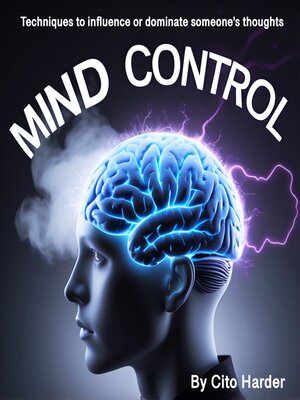Mind Control
audiobook (Unabridged) ∣ Techniques to Influence or Dominate Someone's Thoughts
By Cito Harder

Sign up to save your library
With an OverDrive account, you can save your favorite libraries for at-a-glance information about availability. Find out more about OverDrive accounts.
Find this title in Libby, the library reading app by OverDrive.



Search for a digital library with this title
Title found at these libraries:
| Library Name | Distance |
|---|---|
| Loading... |
Mind control is the practice of influencing, manipulating, or dominating an individual's thoughts, behaviors, or perceptions, often without their conscious awareness. Throughout history, different societies have employed various forms of psychological influence to control groups and individuals, from religious indoctrination to political propaganda and media conditioning. While some forms of persuasion are ethical and openly acknowledged, mind control often operates in subtle, deceptive ways, making it difficult for individuals to recognize or resist.
At its core, mind control exploits human cognitive vulnerabilities. The mind is naturally susceptible to suggestion, repetition, and emotional influence. When exposed to specific messages or ideas repeatedly, a person may begin to internalize them as truth, even in the absence of logical evidence. This principle is used in advertising, politics, religious movements, and personal relationships to shape opinions and behaviors. Whether through fear, guilt, reward, or isolation, those seeking control can manipulate their targets into conforming to specific beliefs or actions.
One of the most effective tools of mind control is misinformation. By distorting reality or presenting selective facts, individuals or institutions can shape perceptions to suit their own agendas. Governments have historically used propaganda to maintain control over populations, while corporations use psychological tactics to influence consumer behavior. In personal relationships, emotional abusers use manipulation techniques such as gaslighting to make their victims question their own perceptions and reality.







